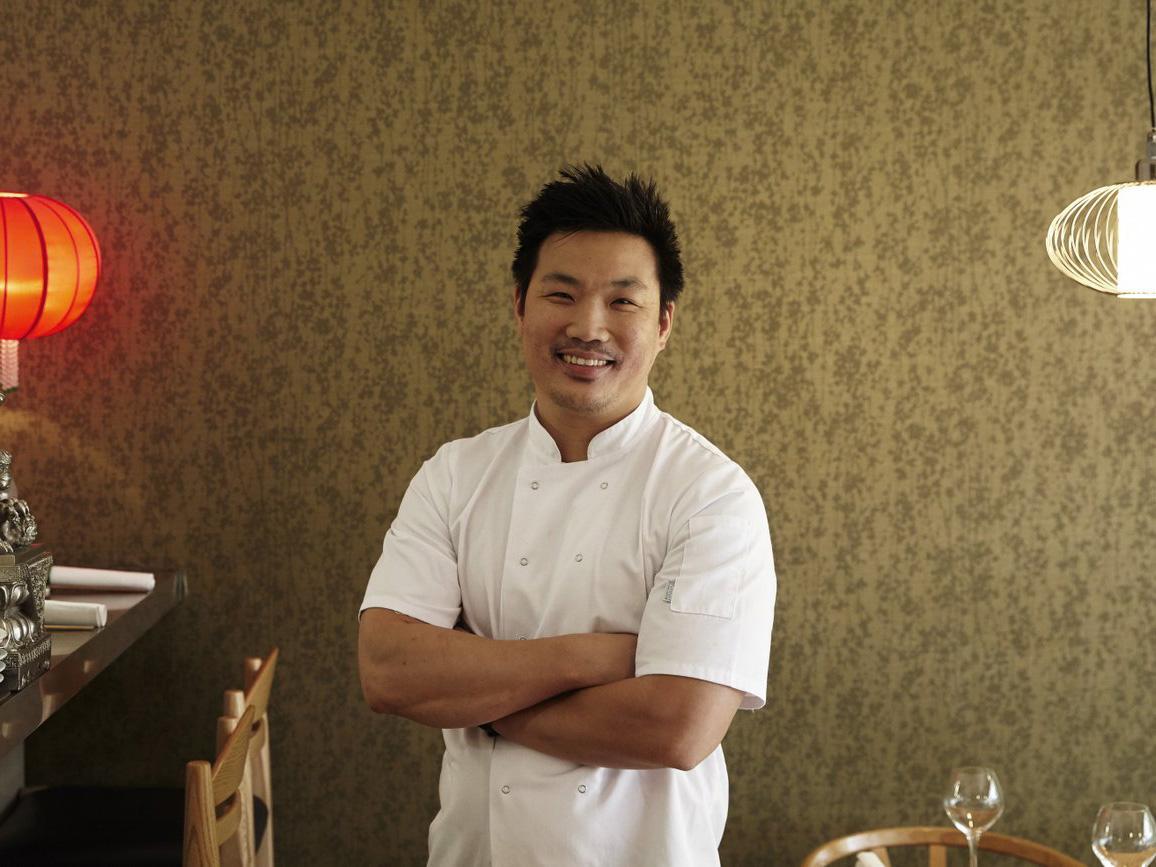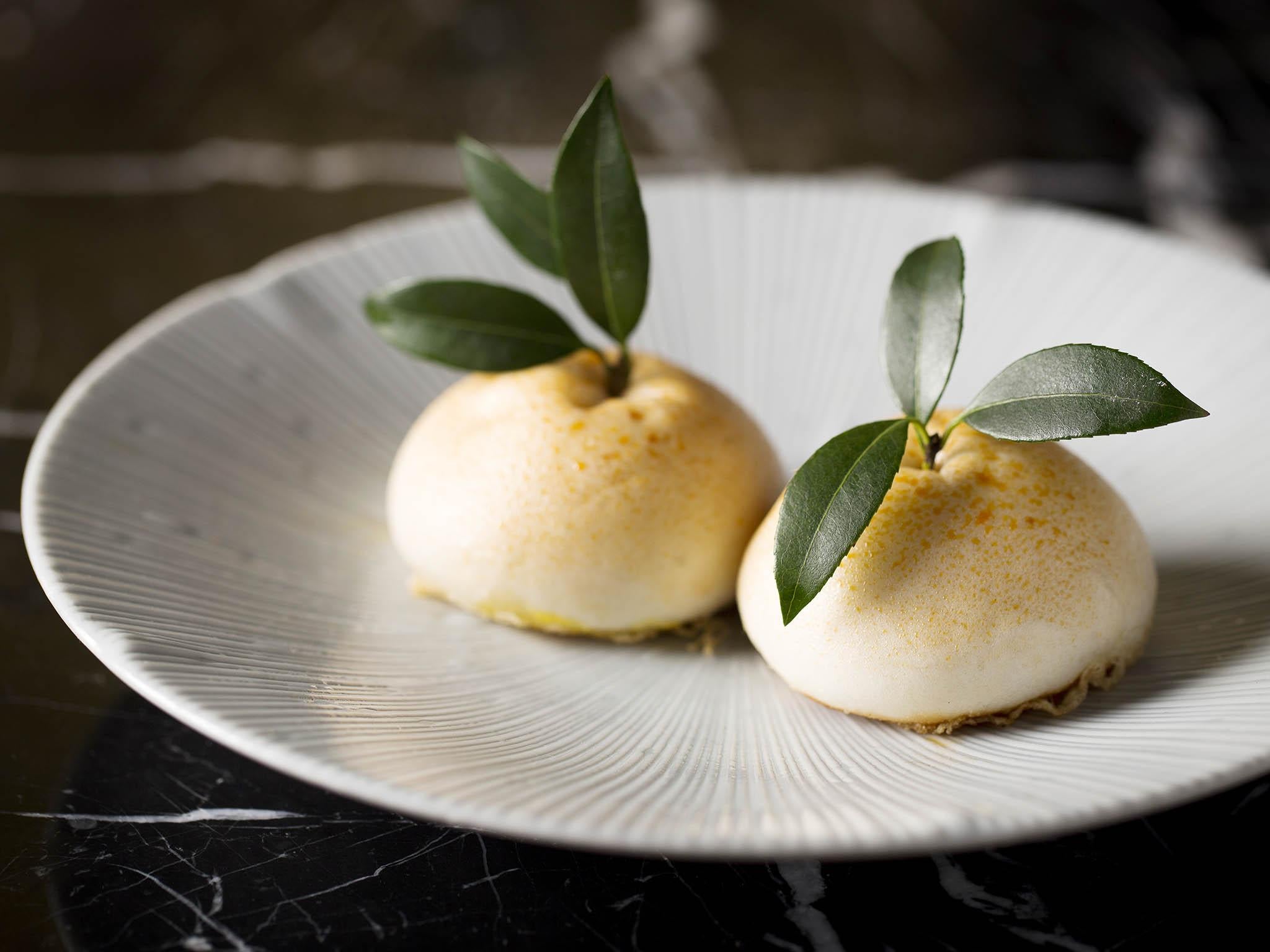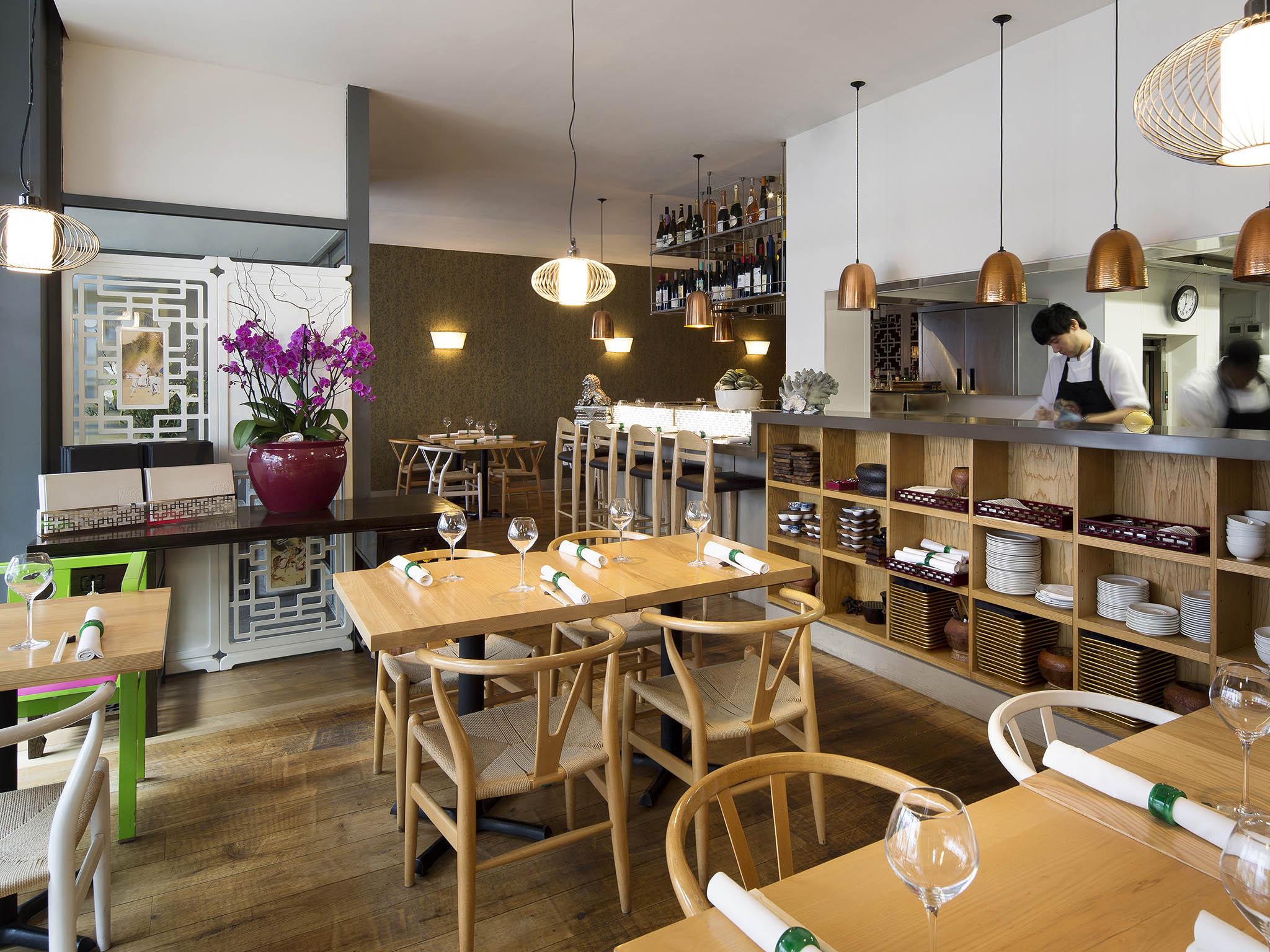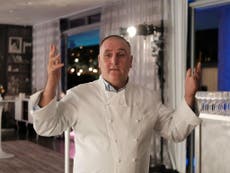Andrew Wong on Chinese food and why he won't serve spring rolls
Former chemistry student-turned Michelin-star chef Andrew Wong discusses his upcoming second restaurant offering

How did you go from studying chemistry at Oxford and anthropology at LSE to following in the footsteps of your parents?
My father had always encouraged me to go into something academic and to not to work in hospitality, so it was because of him that I went to university. When I was 22 my father died, which left my mother running four London restaurants at the time – a lot to take on. I wanted to help keep the family business going, so that’s where it all started.
Would you ever plan to go back to studying either of those subjects, or does that feel like a world away now?
I think it would be wonderful to go back to university and study again, but I can’t see it happening in the near future. I would certainly appreciate university more now than I did in my early twenties. You never know, I’d like to think I’ll go back to studying one day.
When did your dislike for the hospitality world and cooking turn into a career?
It wasn’t a dislike so much as I just wasn’t hugely interested. I’d grown up in the restaurant and become used to it; it wasn’t exciting to me. It was only when I really put my mind to learning how to cook, which is what happened when I enrolled in culinary college, that I became more engaged with the whole thing and saw it as something I could make a go of.

Was it important for you to open your own restaurant on the same site as your families’?
It seemed like an obvious decision. My parents had been running their restaurant on that site, which was named Kym’s, since the Eighties. The restaurant had sentimental value plus a pretty good location in Victoria. There was no reason to open up anywhere else, and I’m pleased we did.
Although it’s the same site, how does your menu differ from your parents’ one?
Kym’s used to serve up a primarily Cantonese menu, the type of food that British people expect from a typical Chinese restaurant, so lots of dishes in bright orange sauces! Chinese cuisine is so much more diverse than a lot of people realise, and that’s what I wanted to show people through my menu at A Wong. We serve dishes from across the whole of China, not just one region.
You say your restaurant is about taking diners through China’s 3,000-year gastronomic history – how did you set about this task?
We serve a Taste of China tasting menu, where every dish is from a different region of China. It’s served with a little story, an interesting snippet of information which we hope makes people think for a second about the heritage of each dish.
Was it hard to give diners an overall view of Chinese food, considering the country’s vast size?
Its size and the amazing range of cuisine is what makes Chinese food so exciting and engaging. What’s been more challenging is to attempt to change people’s perceptions of Chinese cuisine in this country.

What made you want to do this, rather than focus on a particular strand of the cuisine?
I couldn’t just focus on one, I’d be restricting myself from serving so many amazing dishes.
How important was it for you to travel China to learn its cooking styles?
I didn’t think there was any better way to learn than to see these dishes being prepared right in the very heart of where they originated – it’s the only way to truly master authentic Chinese cooking. The six months or so I spent travelling around the country, which included learning how to make Peking duck in Beijing and dim sum in Hong Kong, was the most valuable learning period of my career so far.
Why did you decide not to include spring rolls on your menu, and do you think people will miss them?
We haven’t had any complaints so far! There’s so many other delicious to enjoy at A Wong that I hope people don’t mind too much.
Is there anything else that people associate with ‘classic’ Chinese cooking that you don’t serve?
Not that I can think of. We still serve variations of many classics. Lots of people are pleased that we serve duck and pancakes.
Australia's new foodie hub, the Barossa Valley
Show all 7Chinese people are known for eating some cuts you won’t see on menus in UK Chinese restaurants. Do you think you’d be able to make something like chicken feet more appealing here?
With time, perhaps ... but it’s never going to be the easiest sell.
How did it feel for Jay Rayner to describe your custard bun dessert as “London’s single best dessert” last year?
Well it was very kind of him. Although my team definitely now has its work cut out keeping up with the demand!
What do you think has been the key to the success of your first restaurant and is there anything you would have done differently?
I think a continual desire to learn and evolve has been key. I never stop exploring what’s new with Chinese cuisine, but also spend a lot of time exploring ancient Chinese history – which is what I’m working on at the moment with food anthropologist Mukta Das, to help develop some new dishes. I’m always reading and researching the country’s food scene, looking for ingredients I haven’t used before.
That and putting together a great team of chefs and front of house staff, making sure that everyone working there has the same goal in mind – to create the best possible experience for our diners and to ultimately make our guests happy. To strive to improve every day. I wouldn’t change anything.
Your new restaurant is in the City of London. Why did you choose to open a restaurant here and is it a hard place to fill at the weekends?
I heard that the Bloomberg building was going to be an important new development in the City, and I like that it’s a chance to take my cuisine to a different part of London. And to be positioned amongst so many other fantastic restaurants is pretty cool.
What can people expect here and how will it differ to your first restaurant?
Details are still being finalised but it’ll be like A Wong’s more informal sibling. The dishes will be a little simpler, the menu smaller … but that’s all I can tell you at the moment.
Aside from cooking in your restaurants, what’s your go-to dish to make family and friends?
I actually try not to cook at home, I’m not the best home chef to be honest. You become so reliant on working in your restaurant kitchen and having access to lots of different ingredients, and staff to help you. It’s completely different cooking at home. Mostly we eat out around London, often in Chinatown on a Sunday with family.
Who and where do you look to for inspiration?
Everywhere; travel, music, art, what other chefs are doing. The food at A Wong is born of a combination of ancient techniques and modern innovation.
What can we expect from you in 2018?
Well, A Wong has just undergone a bit of a transformation, to make it that bit more comfortable, and we’re really pleased with it. Then there’s the new restaurant in the Bloomberg building which is keeping me busy. I’m also off to Hong Kong in March for The Great Festival of Innovation which I’m really looking forward to – I’m hoping to learn a lot while I’m out there and meet some interesting creatives.
Subscribe to Independent Premium to bookmark this article
Want to bookmark your favourite articles and stories to read or reference later? Start your Independent Premium subscription today.





Join our commenting forum
Join thought-provoking conversations, follow other Independent readers and see their replies
Comments